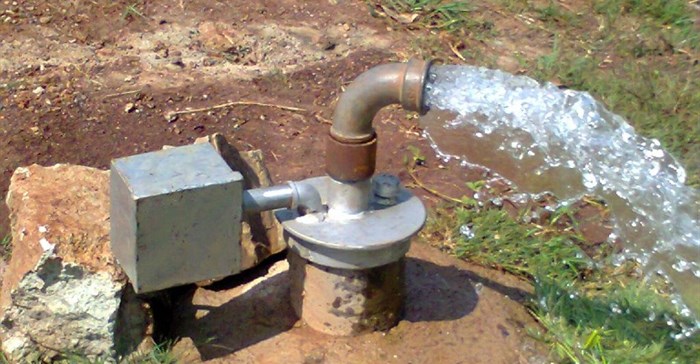
Top stories





Energy & MiningGlencore's Astron Energy gears up with new tanker amidst Sars dispute
Wendell Roelf 8 hours

More news


















Logistics & Transport
Uganda plans new rail link to Tanzania for mineral export boost










With about 500 boreholes registered throughout the city, two Nelson Mandela University (NMU) experts have called for caution because over-abstraction from the underground water table may lead to the contamination of the supply in less than 10 years.
NMU acting botany head Dr Phumelile Gama said boreholes received water from limited underground sources. "I think it is a misnomer that boreholes will alleviate our water issue," he said.
"In the short term perhaps they can, but that reservoir of water is not infinite.
"It also depends on surface water and is part of the water cycle."
Gama is specialising in freshwater and estuarine microalgal ecology. He said at the rate that boreholes were being drilled, it would take between five and 10 years before the water table was affected. Once the water abstraction reached a certain threshold, there was a very high likelihood that water from the sea would begin to seep through the ground and into the Bay's water table, which would then fill it with saline.
"Given the fact that we are near the ocean, there are spaces in the ground which allow intrusion of saline water," Gama said.
He called on the municipality to put together a long-term management plan.
"It's not just a question of digging and having water," he said.
"We, as people, tend to want a quick response to our crisis and quick answers.
"One can't simply implement punitive measures because then people think if they can afford it, they [will] just keep using water."
Municipal spokesman Mthubanzi Mniki said there was no limit to the number of boreholes that could be drilled in the city.
"A limit, if any, would rather relate to how many can be operated at the same time and for what duration to prevent adverse and excessive drops in the ground water table," he said.
There are 466 registered private boreholes in the city - and none are monitored by the municipality. The municipality aims to drill an additional 16 boreholes by the end of the year. Mniki said the municipality had budgeted about R20m for borehole testing and the augmentation of reservoirs.
Additionally, the infrastructure and engineering committee intended spending about R150m this year through the drought alleviation borehole project. This included boreholes at the Churchill Dam, Uitenhage, Coega Kop, Groendal Dam and Moregrove Quarry.
"These augmentation plans and implementation go hand in glove with programmes that seek to decrease water consumption, which include restrictions in place," Mniki said.
Gama's warning on borehole use and drilling was echoed by NMU School of Botany research assistant Dr Denise Schael. She said the areas where boreholes could have a negative effect included Summerstrand and other coastal suburbs.
"The continued borehole drilling will very likely affect the water table and subsequently the surface water as well," Schael said.
"Once the water table drops too far, it invites saltwater intrusion which can only be resolved through desalination.
"Then we will have gone full circle, having accomplished nothing in terms of water saving and we are back to desalination.
"The problem will have adverse effects and the process will speed up the more boreholes are drilled, particularly in coastal suburbs such as Summerstrand.
"The biggest problem is that people with boreholes feel they have carte blanche when it comes to water usage - and the [country's laws] and municipal bylaws aren't very explicit regarding the issue and need to be relooked at."
Mniki confirmed that boreholes were not monitored, but said "the consumption should be similar to that for domestic use".
Eastern Cape Borehole Services owner Erick Kritzinger said the majority of boreholes being drilled were in Mill Park, Walmer and Summerstrand. The depth of boreholes varied between suburbs.
"The water aquifer underneath Port Elizabeth sits below sea level. At the moment, the borehole water pressure keeps seawater at bay," he said.
"However, over-abstraction from the boreholes - particularly in Summerstrand - will see saline leaking into the aquifer."
Kritzinger said it was necessary to install water meters to regulate borehole usage.
"However, it is quite easy to see who is abusing boreholes by the state of their garden."
Source: Herald

For more than two decades, I-Net Bridge has been one of South Africa’s preferred electronic providers of innovative solutions, data of the highest calibre, reliable platforms and excellent supporting systems. Our products include workstations, web applications and data feeds packaged with in-depth news and powerful analytical tools empowering clients to make meaningful decisions.
We pride ourselves on our wide variety of in-house skills, encompassing multiple platforms and applications. These skills enable us to not only function as a first class facility, but also design, implement and support all our client needs at a level that confirms I-Net Bridge a leader in its field.
Go to: http://www.inet.co.za